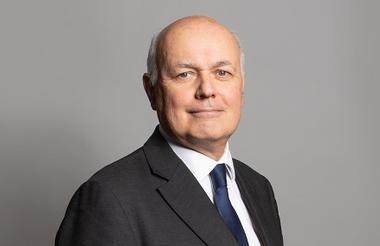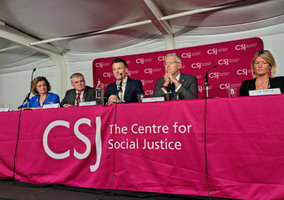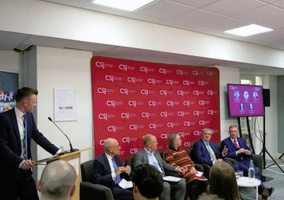The UK has the ‘worst tax position for charitable giving that I can think of’, a former leader of the Conservative Party has said, urging the country to mirror the USA’s approach to wealthy donors.
Iain Duncan Smith, who led the Conservatives from 2001 to 2003, made the comments at the party’s annual conference in Manchester yesterday.
“We have the worst tax position for charitable giving that I can think of. It’s the meanest position,” he told the fringe event called Backing Britain’s Givers organised by his think tank, the Centre for Social Justice (CSJ).
“If you go to America, you wonder why so many more of the wealthier people really do give money: because it’s worth it to them, first of all, and there’s no risk.”
Duncan Smith added: “The first thing that I would recommend as and when we head towards government, hopefully, is that we actually readjust the position on this and show the charities that [...] a much greater proportion of the money given will actually go to the charities as necessary.
“Our tax position needs sorting out.”
UK has ‘culturally something against’ the wealthy
Duncan Smith’s sentiments on wealthier individuals giving to charities were echoed by shadow cuture secretary Nigel Huddleston, who sat alongside him on the panel.
Former charities minister Huddleston said that in the US “you get some really big, generous givers and they’re applauded and recognised - you often get a name on the building or something as well”.
Huddleston added: “We still culturally have something against wealthy people and really, really successful wealthy people, and they’re almost talked down, whereas in fact, actually, if encouraged, cajoled or indeed there are tax incentives in place, they can do so much positive for society.
“But if we don’t recognise, applaud and thank them for it, then surprise, surprise, we often don’t get it.”
‘Tesco-isation of charitable giving’
Duncan Smith also described what he called the “Tesco-isation of charitable giving”, whereby the majority of donations are given to bigger, rather than smaller charities.
He said: “Most of the money that was given goes into big charities.
“They do an awful lot of lobbying and everything else, but very little actually when you identify functionally doing stuff that works on the ground.
“Whereas a lot of the smaller community groups and charities, often not very well known about, they do huge amounts of work, and it was from them […] they were all the most remarkable because they had policy positions that they were actually doing that worked.”
Duncan Smith appeared to be referring to the findings of the Supercharging Philanthropy report, published earlier this year by CSJ, which estimated that billions could be unlocked for small charities in the UK through measures including matched donations schemes and dormant assets.
The CSJ has previously published other work championing smaller charities.
Duncan Smith’s comments appeared controversial to some audience members, one of whom directly challenged his view that larger charities “do very little actually” during the subsequent Q&A discussion.












